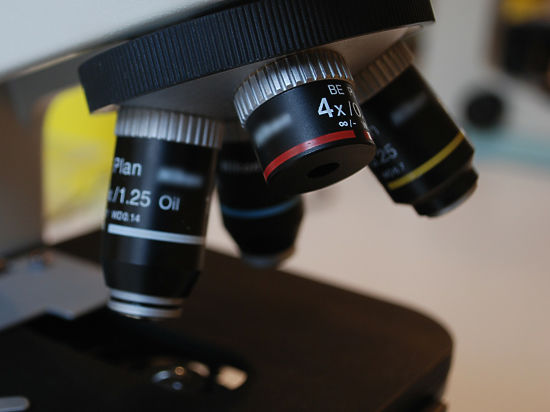Специалисты, представляющие Пекинский университет, обнаружили ген, одна из вариаций которого на 20 процентов понижает шансы человека найти себе пару. Ген 5-HTA1, который уже стали неофициально называть «геном одиночества» или «геном холостяка», определяет, насколько легко его обладателю устанавливать с окружающими доверительные отношения.
If it seems you are permanently single while everyone else around you is in a relationship, blame your DNA.
Scientists have identified a ‘singleton gene’, and found that those who have it are 20 per cent more likely to be single than others.
It is thought that by lowering levels of the feel-good brain chemical serotonin, the gene makes people less comfortable in close relationships.
This could make it harder to form them in the first place – or lead to break-up after break-up.
The scientists from Peking University in Beijing tested hair samples from almost 600 Chinese university students to analyse a gene called 5-HTA1, which comes in two different versions.
Those with the ‘G’ version were much more likely to be single than those with the ‘C’ version.
Some 60 per cent were not in a relationship – compared to 50 per cent of those in the c group.
Importantly, the link couldn’t be explained by other factors that influence relationships, including appearance and wealth.
The key to the findings seems to be the role of the 5-HTA1 gene in the brain.
Those with the ‘G’, or singleton, version make less serotonin, a brain chemical involved in mood and happiness.
It was already known that people with the ‘G’ allele, or version, find it more difficult to get close to others.
Plus, they are more likely to be neurotic and to suffer from depression.
Writing in the journal Scientific Reports, the researchers said: ‘As pessimism and neuroticism are detrimental to the formation, quality and stability of relationships, this connection between the G allele and psychological disorders might decrease carriers’ dating opportunities or lead to romantic relationship failure.’
The researchers said that students may have more free time and freedom to form relationships than others.
And at other times of life, other factors, such as pressure from parents to marry, may be much more influential.
Despite this, they concluded that their study provides ‘evidence for genetic contribution to social relationships in certain contexts’.
Other scientists said that while genes will inevitably influence relationships, their role in most cases will be small.
Dr Pam Spurr, a relationship expert, said that we don’t have to let our genes rule our lives.
She said: ‘I know that our genetic heritage determines some of our behaviour but we always have choice.
‘If someone’s difficulties with dating are flagged up to them, I believe they can learn to interact in a way that will make them more successful in meeting somebody.
‘I feel quite optimistic about that.’
Professor Tim Spector, an expert in the role of genes from King’s College London, questioned how strong the research was.
However, studies show that our odds of getting married and staying married and our number of sexual partners are all influenced by our DNA.
Despite this, genes are not the be all and end all. Simple evidence for this comes from looking at identical twins.
They are usually attracted to the same type of person initially, but end up settling down with very different mates.

Для того, чтобы изучить влияние гена 5-HTA1, специалистами было проведено исследование с участием и 600 китайских студентов. Всего у 5-HTA1 бывает две вариации, С и G, и среди участников исследования были обладатели обоих этих вариантов, сообщают средства массовой информации.
О том, какая именно вариация гена была у различных участников, учёные узнали, проанализировав их волосы в лабораторных условиях. После того, как эта информация была получена, специалисты попросили студентов рассказать, находятся ли они с кем-либо в романтических отношениях. Как выяснилось, среди обладателей версии гена С таковых было 60 процентов, в то время как среди обладателей варианта G — лишь 50. Как утверждают учёные, это достаточно большая разница, чтобы считать её статистически значимой. Также учёные утверждают, что данное различие объясняется именно генетическими различиями людей, а не тем, что одни из них могли быть более красивыми или богатыми, чем другие.
По мнению исследователей, в варианте G ген заставляет человека испытывать определённые трудности при установлении отношений с другими людьми, а также сильнее переживать разрыв установившихся контактов, становясь от этого ещё более замкнутым. Первопричиной же, по версии авторов исследования, является то, что в организме людей, у которых ген имеет версию G, в головном мозге вырабатывается меньше сератонина.
Стоит отметить, что многие специалисты выступают против громких «ярлыков», которые навешиваются на определённые гены после того или иного исследования. К примеру в мае текущего года учёные обнаружили 74 генетических варианта, оказывающих влияние на успеваемость детей в школе и на их желание учиться, однако исследователи призвали не говорить об их выводах как об открытии «генов отличников». Как пояснили свою позицию исследователи, во-первых, подобный подход является слишком упрощённым, а во-вторых, гены представляют собой лишь один из множества факторов, влияющих на формирование личности человека, а влияние каждого отдельно взятого гена и вовсе редко бывает значительным.
Если вы нашли ошибку, пожалуйста, выделите фрагмент текста и нажмите Ctrl+Enter.








Сообщить об опечатке
Текст, который будет отправлен нашим редакторам: